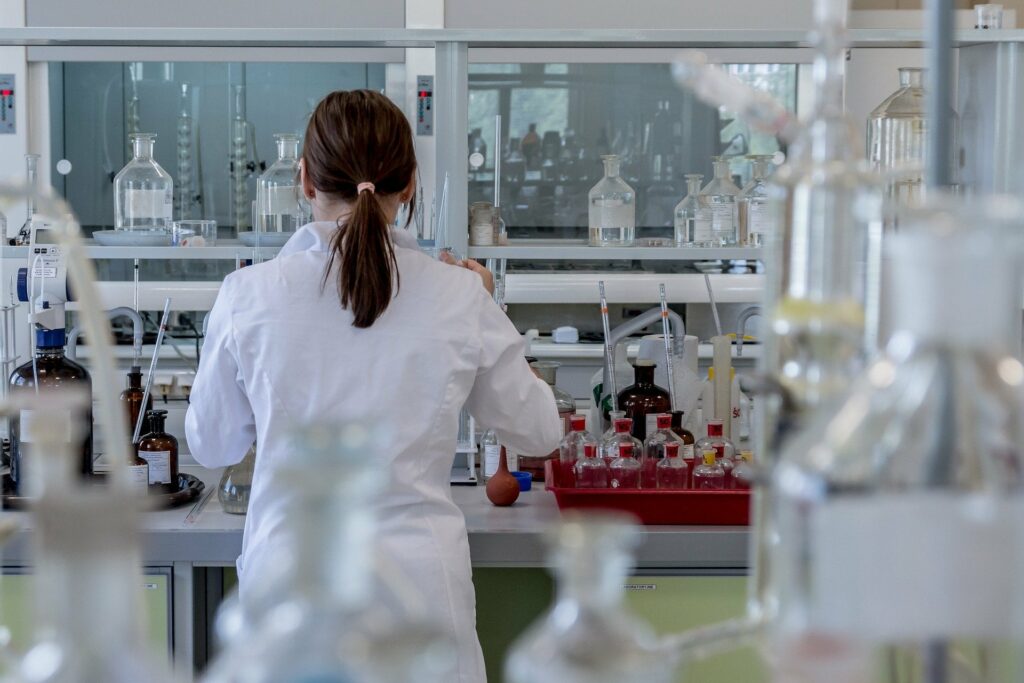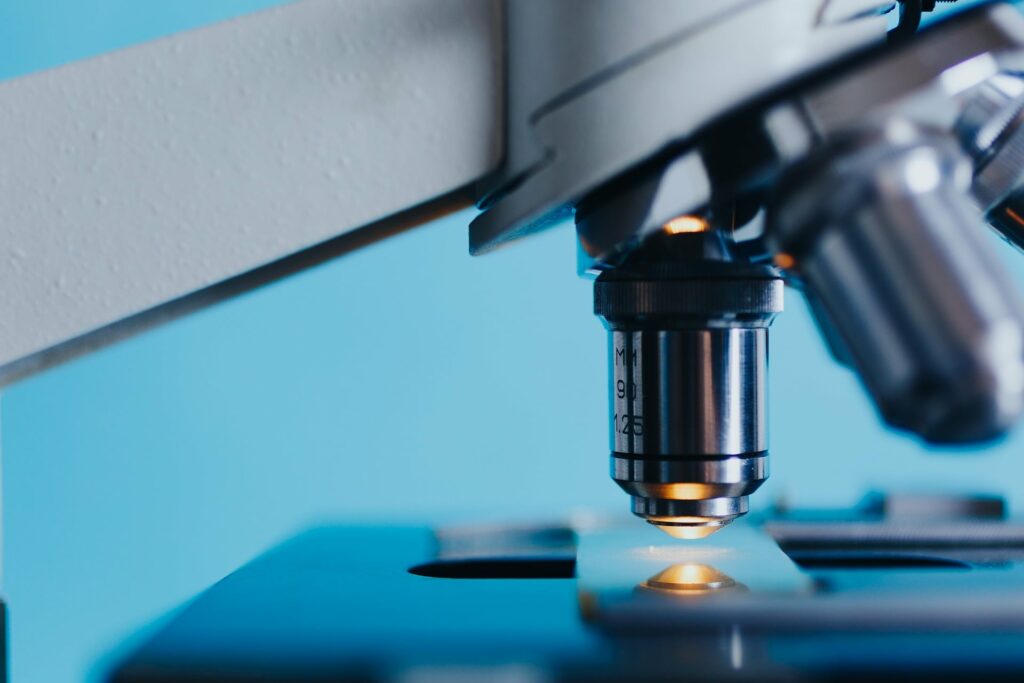The agreement on Ukraine’s participation in the Horizon Europe Framework Program for Research and Innovation and the European Atomic Energy Community’s Euratom Research and Training Program was recently signed.
What are the priorities, structure and focus areas of these programs? How do researchers can choose relevant competition, win and successfully complete the project? And how and with what can the State help?
Opportunities, pitfalls and conditions for participation in European competitions were discussed during the information day, which was attended by specialists from the Ministry of Education and Science, representatives of National Contact Points, leading scientists and government officials.
Hryhoriy Mozolevych, Head of the Expert Group on Integration into the European Research Area of the Ministry of Education and Science said that obstacles on the way to the European Research Area (ERA) are: problems with the infrastructure of scientific institutions; imperfect budgetary support instruments at the national and international levels; low level of cooperation of scientists with industry and business, etc. Many steps have already been taken in order to address these challenges. In particular, the concept of the State Program for the Development of Research Infrastructures for 2021-2026 was developed (in the near future the draft program will be submitted to the government). The Law “On Amendments to Some Laws of Ukraine on Intensification of Science Parks” was adopted, which will help reduce bureaucratic procedures in scientific institutions and higher education institutions. It is also expected that in the near future the Parliament will consider the bill “On Amendments to Some Laws of Ukraine on Stimulating Activities in the Sphere of Technology Transfer”.
– At the beginning of 2022, the European project will be launched on inspection of our research infrastructure and determination of priorities of its development, – Hryhoriy Mozolevych said. –
The EU has long understood that individual states cannot build absolutely everything (i.e., all research infrastructures), everyone chooses their own priorities and “enters” the ERA with these priorities.
Mr. Mozolevych said that the first two projects to the amount of 800,000 euros are selected for funding under this program. He is convinced that in the near future Ukraine’s participation in the European research program will exponentially increase.
In order to increase the participation of scientists in the program, the Ministry of Education and Science (in cooperation with scientists) wants to improve the network of National Contact Points; today a new legal act on network development is underway.

The Ministry is currently working on launching the Horizon Europe National Portal.
– The Horizon Europe program is open for Ukrainian scientists, – Hryhoriy Mozolevych said. – In 2022, Ukraine will pay contributions, and financing of our projects will start.
NUCLEAR RESEARCH
The Euratom program is extremely important for Ukraine. It is part of the “EURATOM Fusion Programme” single European consortium and has two main areas of research: thermonuclear fusion (necessary for the development of “green” energy of the future) and nuclear fission (focused on safety, nuclear waste disposal, etc.). Ukrainian researchers received associate membership in the EUROfusion consortium in 2017 and have every chance to receive funding in the new framework program.
The coordinator of the EUROfusion Ukrainian research division, Deputy Director General for Research of the National Research Center “Kharkiv Institute of Physics and Technology” Igor Garkusha said that the proposals for cooperation until 2025 are already developed and the European Commission currently examines them. “In fact, the Ukrainian Research Unit has been established, which consists of three institutions of the National Academy of Sciences of Ukraine (Kharkiv Institute of Physics and Technology, Institute of Nuclear Research, Bogolyubov Institute of Theoretical Physics) and three leading universities (Vasyl Karazin KhNU, Taras Shevchenko KNU and Lviv Polytechnic). Ukrainian scientists have the right to vote in EUROfusion, they can work on the best equipment in the world, in particular, on experimental installations MUST, TCV, etc.
There are currently two open-ended Euratom thermonuclear fusion and nuclear research rounds, and applications may be submitted.
“The Euratom National Contact Point operates in Ukraine; it helps scientists prepare their projects and provides the necessary information. We will be happy to help, please contact us!” – Igor Garkusha emphasized.
ADVANCED SCIENCE
One of the main priorities of Horizon Europe program is Advanced Science. It consists of three components: the European Research Council, the Marie Skłodowska-Curie Actions and the Research Infrastructures, which together have financing of around € 25 billion (a quarter of the budget).
Karina Shakhbazyan, chief researcher at the Center for Research on Scientific Property and Technology Transfer of the National Academy of Sciences of Ukraine, said that Advanced Science focuses on scientists: career development, creation of decent working and family living conditions, etc.
The first cluster of Advanced Science is the European Research Council. This agency funds advanced research of scientists from the EU and other countries. There are no restrictions on citizenship, but research should take place in Europe. The second cluster, Marie Skłodowska-Curie Actions, aims to support the learning, mobility and career development of EU and associated scientists. The third is Research Infrastructures. Its goal is to create world-class research networks (including virtual ones). “These infrastructures must be unique in some way,” Karina Shakhbazyan said. “There must be open access and the opportunity to hold educational and social events.”
Global challenges
The second important unit of the Horizon Europe is Global Challenges and European Industrial Competitiveness. EUR 53.5 billion (56 percent of the total program funds) will be allocated for its financing.
Serhiy Shukayev, Head of the Coordination Department for International Project Activities of the Igor Sikorsky KPI, spoke about the thematic clusters of this unit.
The Health Cluster, for example, involves the development of tools, technologies and digital solutions for health care, and so on. “This cluster shows the speed of the EU’s response to challenges and threats,” Serhiy Shukayev said. An example is the pandemic response competition to be announced in January 2022.”

The second cluster, Culture, Creativity, Inclusive Society, aims to support European democracy and human rights, preservation of cultural values, etc. In particular, in January it will be possible to apply for participation in competition for the protection of endangered languages.
Third cluster projects (Digital Security for Society) have to respond to the challenges of cybersecurity, counter-terrorism, etc.
One of the competitions, which will be announced in June this year, will be dedicated to the fight against corruption.
Fourth cluster projects (Digital Technologies, Industry and Space) must create competitive technologies for industrial development. The idea of the fifth cluster (Climate, Energy and Transport) is to combat climate change, and energy and transport transformation (they must become environmentally friendly and safe). The goal of the sixth cluster (Food, Bioeconomy, Agriculture, Environment) is the smart management of natural resources.
A new financial instrument appeared in the program: research and innovation missions. These are: adaptation to climate change; fight against cancer; soil health; climate-neutral and smart cities; healthy oceans, seas, coastal and inland waters.
INNOVATIVE EUROPE
Certainly, it is important not only to execute the project, but also to implement its results. Ukraine will benefit greatly from the experience of the European Innovation Council, which promotes the commercialization of startups and the creation of an appropriate climate for innovation. A breakthrough theme or innovation project is accompanied from the idea to its implementation.
– Europeans have wondered why so much money is spent on research, and although there are good results, they “do not work” for the economy. – The President of the NGO European Innovation Agency, Ivan Kulchytsky touched on an important issue. – To solve this problem, the EIC was created … We put the same question: what shall we do next with the research results?
I am convinced that the model of the European Innovation Council can be useful for Ukraine as well.
Supporting startups and new solutions is a key feature of Horizon’s third important priority, Innovation Europe.
The budget of this unit is over 13 billion euros.
The application mechanism for Innovation Europe competitions differs from other Horizon competitions. In order for business not to waste time, it is allowed to submit just pitches, slides and videos. And after the first selection applicants prepare a complete application.
– It is important to have an innovative project, the results of which are needed in the market, – said the speaker. – If you have such an idea, apply and with the help of grant funding you will be able to create a prototype that can be presented to the business.
HOW CAN THE STATE HELP?
Scientists and entrepreneurs applying for Horizon Europe or developing the project, are in dire need of state support.
Oleksiy Kolezhuk, Chairman of the Scientific Committee of the National Council of Ukraine for the Development of Science and Technology, shared his views on what this support could be. “I would divide this problem into several parts,” Oleksiy Kolezhuk said. “The first is unwillingness to participate. Those who already have experience of international cooperation take part in international projects. Therefore, it is important to increase the level of mobility of researchers and teachers.”
Oleksiy Kolezhuk is also convinced that it is necessary to build a system of information and training support. And it’s not just about advice on general issues provided by the National Contact Points! It is necessary that people who have experience in winning competitions and project management, help newcomers, advise what is missing in the applications. “For example, I can look at the application submitted to the Marie Skłodowska-Curie Action and say whether it will pass or not and advise what shall be added,” the scientist said.
Assistance with project management and support is also needed. Oleksiy Kolezhuk said that people who have already administered the grant say: what a horror, never again!
Unfortunately, European requirements do not correlate with Ukrainian budget legislation. And the State should organize, for example, grant offices, which will help with the maintenance of sub-accounts.
It is also important to encourage businesses to deal with government agencies and at the same time to interest research institutions and universities in creating partnerships with entrepreneurs. Such cooperation is needed, for example, for innovation competitions. “There is also a group of unresolved issues, starting with tax incentives for private entities,” Oleksiy Kolezhuk said. “It would be worth adopting international practices when high-tech startups are exempt from taxation.”
The participants of the information event are convinced that it is necessary to develop a Horizon Studies training course for young (and perhaps not only young) scientists.
They need to understand whether their research is relevant, what the requirements of the program in general and competitions in particular are.
Prepared by Svitlana GALATA
Svit newspaper, № 1-2, January 2022
